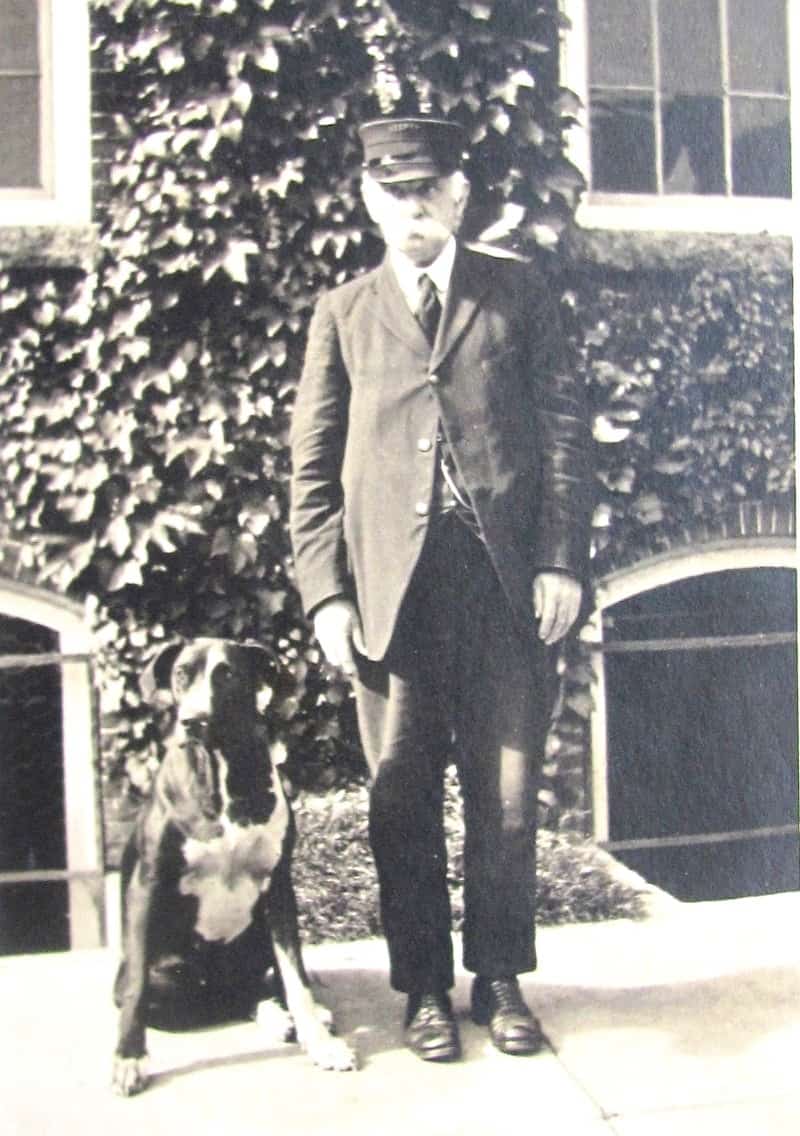
The passage below is from “History of Rockingham, Vermont,” by Lyman Hayes, 1907.
“During the early years of Rockingham as a town, there were many peculiar laws upon the statute books which were interesting to note. Nine offenses were punishable by death.
“This was by no means a large number in those days, when Connecticut had twelve upon her list, and in Great Britain no less than one hundred and sixty crimes were subject to the death penalty.
“A few illustrations of the early forms of punishment will serve to give an idea of the nature of all.
“Every town was obliged to maintain a pair of stocks at its own expense, to be set in a public place. The liar, the profane swearer, the drunkard, and the Sunday violator were obliged to sit therein for a length of time, secured with lock and key. The stocks were arrangements whereby persons, sitting with feet extended in front of them, had their legs confined between two pieces of timber hollowed out so as to admit the legs above the ankles, but the feet could not be withdrawn until they were released by raising the timber, which was secured by the lock. Besides this there was the pillory, a somewhat similar contrivance whereby the criminal stood upright with his neck and both wrists confined between two sticks and locked in the same manner; and there was also the whipping post of every town.
“It is probable that these three instruments of punishment were set up in the public street of Rockingham village, in front the present brick store, that being the most central and public place.
“The town of Westminster had two whipping posts and both remained as late as the year 1804. One stood in front the old town meeting house and the other, used largely for soldiers, was located at the extreme south end of the “lower street.”
“One law was, “Whosoever shall commit burglary shall, for the first offense, be branded on the forehead with the capital letter B, with a hot iron, and shall have one of his ears nailed to a post and cut off; and shall also be whipped on the naked body fifteen stripes. And for the second offense such persons, shall be branded as aforesaid, and shall have his other ear nailed and cut off and shall be whipped on the naked body twenty-five stripes, and if such person shall commit the like the third time he shall be put to death as being incorrigible.”
“The counterfeiter was branded with the capital letter C, had his right ear cut off, his property forfeited to the state, and was then committed to the workhouse for the remainder of his life.
“Blasphemy carried a penalty of “forty stripes on the naked body, and one hour in the pillory and bonds for good behavior.”
“Horse stealing subjected the person to be whipped not over 100 stripes and other severe punishments.
“During Sunday, “rude, profane or tumultuous behavior or disturbance of a meeting” was punished by forty stripes on the naked body, or sitting in the stocks two hours.
“Such modes of punishment were not of long duration, for, in 1809, a state prison was built at Windsor, and from that time the imprisonment of the offender was more commonly substituted in their place.”
The photo with this article is Henry Sanderson. He was a guard at Windsor State Prison. He’s an elderly man with white hair and a dog. It would date to about 1915, give or take a few years.
We need a secretary at Chester Historical Society. Duties include recording meeting minutes, emailing them to our members, and occasionally sending a thank you to a donor. It’s not a huge workload.
If you like history you couldn’t find a better group to work with. Our meetings are always fun and entertaining.
Meetings are followed by a slideshow of old photos of the area. It’s always interesting to hear what a member knows about a particular slide. Please contact me if interested.
Instead of an old saying:
Jack Bittner was an auctioneer in Putney in the 1980s. Jack called me to look at some antique furniture he had consigned for his auction.
The furniture was made about 1810 in Baltimore, Md. I said the card table might bring $15,000. It sold for $18,000.
After the sale, a man approached Jack saying, “I bet you were surprised how much that card table brought.” Jack, “Yes, I thought it would bring more.”